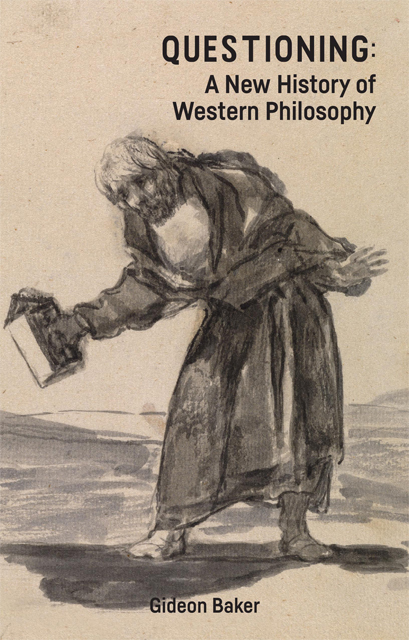3 - Plato
Published online by Cambridge University Press: 14 July 2023
Summary
PLATO’S APPROACH TO QUESTIONING was built on what he took to be a fundamental distinction between truth and opinion. As he argued in the Republic (534a), while opinion (doxa) is concerned with the world of change and includes all forms of belief (pistis) about things, philosophy asks only after the true world which does not change. Knowledge of these eternal themes (epistêmê) is the aim of the philosopher.
As a student of Socrates who died because of it, Plato (427–347 bce) was well aware of the unsettling consequences of philosophical questioning. As well as undermining social order, questioning also threatens cynicism in the one who questions. This is why, in the section of Republic (538d–e) that he devoted to the education of the philosopher, Plato specified that philosophical questioning must not begin too young (not that the old, set in their ways, are capable of it either):
[B]ut what happens when [the young philosopher] is confronted with the question, ‘What do you mean by “honourable”?’ When he gives the answer tradition has taught him, he is refuted in argument, and when that has happened many times and on many different grounds, he is driven to think that there’s no difference between honourable and disgraceful, and so on with all the other values, like right and good, that he used to revere. What sort of respect for their authority do you think he’ll feel at the end of it all?
The problem, Plato elaborated, is that, disabused of conventional notions but not yet arrived at the truth, philosophical questioning tempts the young to seek only pleasure. Finding nothing to be true and not yet fully embarked on the true life, the young questioner will be seduced by ‘a life which flatters his desires’ (Republic 539a). Indeed, even the way he questions will be marked by pleasure-seeking: ‘You must have noticed how young men, after their first taste of argument, are always contradicting people just for the fun of it […] like puppies who love to pull and tear at everything in reach’ (Republic 539b). For Plato, the worst thing in all of this is not that the young questioner discredits himself, but that, in making questioning all about him, he risks the reputation of philosophy.
- Type
- Chapter
- Information
- QuestioningA New History of Western Philosophy, pp. 31 - 40Publisher: Edinburgh University PressPrint publication year: 2022



